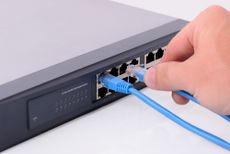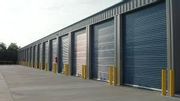5 Tips for Placing Electronics in Storage

People hang on to old electronics for many reasons, such as nostalgia or wanting to sell them after their value increases over time. However, many electronic devices are fragile and require special preparation for storage. The guide below shares a few tips to follow when storing your old TV, computer, or video game system.
How to Properly Store Electronics
1. Refer to User Manuals
You might not think there’s much use for a user manual after installing or setting up a device. However, these manuals often have instructions for storing the item, and they are your first resource for this task.
Keep the manuals for any electronic device you have, and file them all away in one place so you know where to find them when needed. If you threw one out, research the device online and see if the manufacturer has instructions available.
2. Prepare the Electronics
Before packing your devices, make sure they are completely shut down. If they have batteries, take them out, as this will prevent your device from overheating. Additionally, remove any CDs if the device has a disk tray, and tape up any drives so they won’t accidentally protrude out and break. You should also back up any information on an external drive or the cloud so you still have access while a device is in storage.
3. Label Cords
 Cords are a common annoyance because there’s often a lot to keep track of. When packing electronics, place cords in bags close to the device, and label them so you can tell the difference. Nothing can be more frustrating than trying to find the right cord when they’re all in a knot.
Cords are a common annoyance because there’s often a lot to keep track of. When packing electronics, place cords in bags close to the device, and label them so you can tell the difference. Nothing can be more frustrating than trying to find the right cord when they’re all in a knot.
4. Pad Boxes
It’s best to store electronics in the same box they were in when you bought them. If the original box isn’t an option, you can use regular boxes with a few added steps for extra protection.
First, wrap a device in a towel to prevent any dents or scratches from forming. Then, line a box with bubble wrap. After placing the item in a box, fill in any extra space with more bubble wrap or cardboard to prevent any drastic movements from damaging the item.
5. Use Climate-Controlled Storage
Climate-controlled storage is useful for storing all kinds of sensitive items, like electronics, musical instruments, and furniture. This kind of storage protects items like these from damage due to extreme temperature shifts, poor air quality, and dust and debris.
Electronics, in particular, are vulnerable because of their internal wiring and mechanical components. If anything was damaged, your electronics won’t work properly. Luckily, climate-controlled storage will prevent any of these issues from harming your items.
If you have electronics to store, reach out to Tom Thumb Mini Storage in San Marcos, TX. They are family-owned and -operated, offering a wide range of affordable storage unit sizes. Their climate-controlled units are ideal for sensitive items, and you’ll have 24/7 access to your belongings. Call them today at (512) 396-3434 or go online for more information about the company.
About the Business
Have a question? Ask the experts!
Send your question

